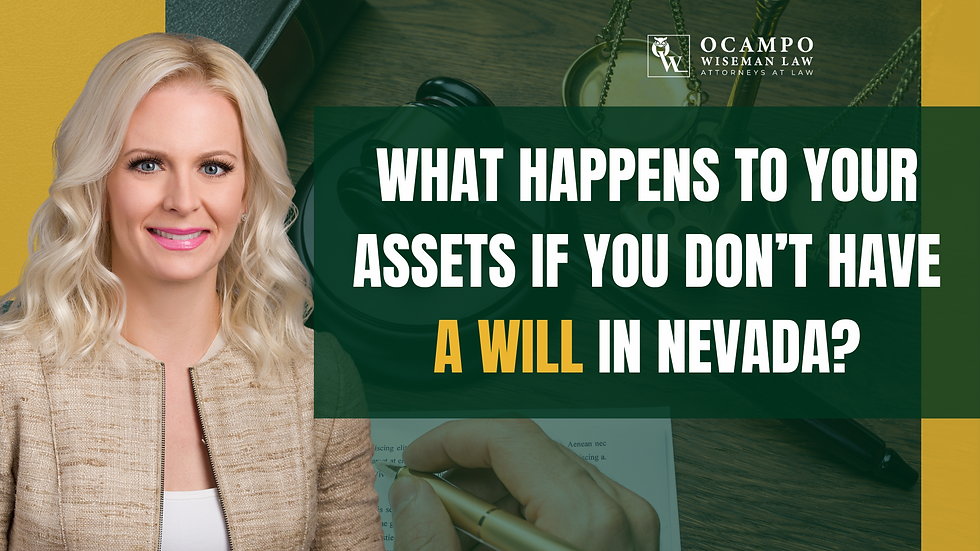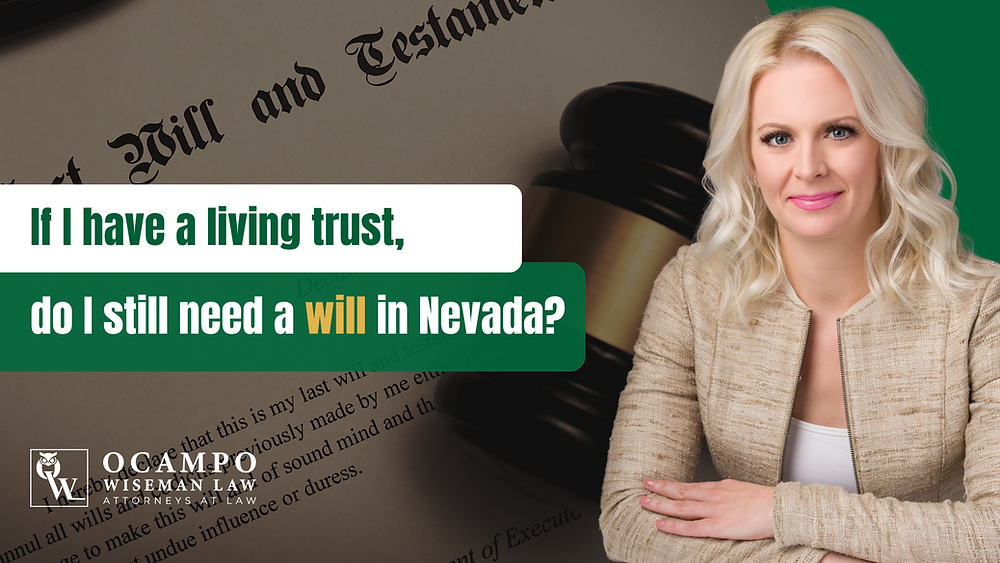What happens to your assets if you pass away and do not have a will? This blog post will look at the implications of not having a will in place.
Having a will is important to ensure your assets are handled accordingly when you pass away. Without a will, the court will use Nevada statutes to determine the allocation of your assets. These statutes, known as intestate succession statutes, provide a framework for asset transfer in the absence of a will or trust.
So what happens if you die without a will in Nevada?
If a person dies without a will and is solely survived by their spouse, the spouse inherits the entire estate. However, when children are included, the distribution becomes more complicated. If a spouse and one child survive an individual, the spouse will inherit all of the community property. The separate property will be divided evenly between the child and spouse.
The distribution structure prioritizes the nearest blood relative, with the surviving spouse being the principal recipient. This insight illustrates the default outcome when people lack the will to direct the transfer of their possessions.
While intestate succession regulations provide a framework for wealth distribution, they may not reflect an individual's wants and intentions. This highlights the significance of estate preparation, notably drafting a will or trust. A will allows individuals to pick their preferred beneficiaries and specify how they want their possessions distributed after death.
To avoid the court relying on statutes to distribute your assets, you should consider estate planning options such as creating a will or trust. By proactively planning your estate plan, you can have a say in asset distribution and protect your loved ones from potential complexity and uncertainties.
Finally, without a will, the court may use state statutes to determine asset distribution, resulting in outcomes that do not reflect an individual's desires. Estate planning, particularly the creation of a will or trust, allows individuals to control their possessions' fate while providing clarity for their loved ones at difficult times.
For anyone interested in learning more about estate planning and asset protection, our office offers a free 15-minute consultation, or you can arrange an appointment directly through our office.
Taking the time to address your estate planning concerns can bring you peace of mind and ensure that your hard earned assets go to the people you wish.






